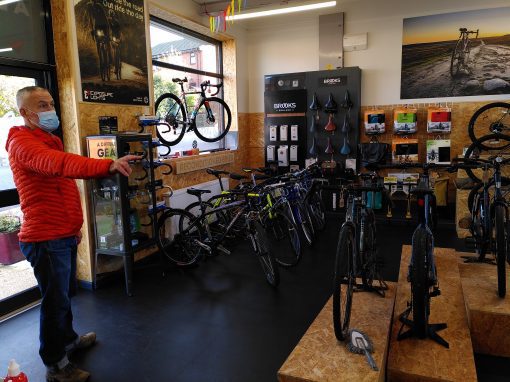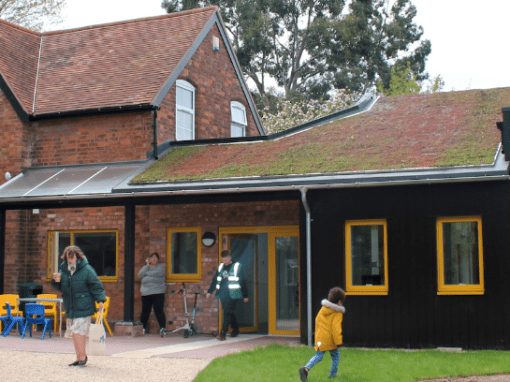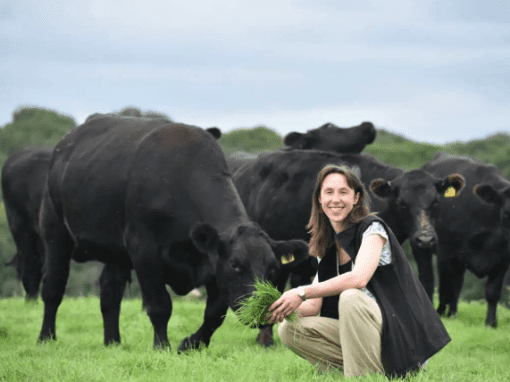Kitty’s Launderette was founded by Grace Harrison when she was in her mid-20s, and now runs as a worker-community co-operative which is also accountable to the wider community. Employees have an opportunity to get to know all parts of the business, from serving customers to doing accounts. Many people who have
been otherwise excluded from employment benefit from the flexible hours, real living wage pay and collective responsibility at Kitty’s.
Younger workers are actively encouraged to take on as much responsibility as they want, such as young worker Bryn, aged 23, who is now leading on finance.
Grace Harrison, aged 32, had previously been involved in the DIY arts scene around Liverpool, running a DIY political film festival alongside other self-organised work and cleaning jobs. She was tired by the exclusivity and lack of structure of the spaces she was working in. Grace started exploring more stable, autonomous models for community-building, and – inspired by the Homebaked Community Land Trust – got interested in the co-operative model. “I became interested in things like cooperatives as models for structured ways of working together to achieve goals and make decisions. I spent my 20s under austerity, and saw many organisations fall apart because they were reliant on a shrinking pool of grant funding. It made people competitive, rather than collaborative. I wanted to create a structure for autonomy and meaningful collaboration.”
Reflecting on what made Kitty’s possible, Grace recognises that she had to do a lot of work for free in the early days. She acknowledges that this sort of ‘sweat equity’ is something many young people cannot afford. She kept up a cleaning job through the years she was developing the launderette, and lived as cheaply as possible. Grace explains her approach to cultivating inclusive leadership: “If you have desire and energy to build new skills, you’ll excel here. Several of our young workers are on the board, along with local people and customers. At Kitty’s, no area of the business is out of bounds for anyone: everyone can see the accounts, anyone can shape the direction of the organisation.”
Anthony started university but left because of mental health challenges. He moved home, worked in a restaurant kitchen for a while, and then applied for a job at Kitty’s through the government’s Kickstart scheme. He now coordinates the events at the laundrette, reaching out to other community organisations and members to consult on what they think the area needs, and what to offer in the social space. This ethos of openness and collaboration has built his confidence. “We all have a say. In previous organisations it’s just been ‘you do what I say’. You feel like a kid trapped in a cage. At Kitty’s the cage doesn’t exist. We all manage each other and have a responsibility to each other and ourselves to make our work the best we can… At Kitty’s everyone supports your ideas and gives you the push to actually go and make them happen. Saying ‘yes’ to each other is something I will take forward into any future role.”
Overall, what is most important to Anthony is the laundrette’s ethos and structure: “Kitty’s isn’t a charity. It’s about self-help, self-organising, self-respect. We should be investing in the local economy. We should re-occupy the high streets really. There is as much ambition here in Liverpool as there is in Wall Street. For young people it is harder – school entrenches individualism and competition, tells us that the world isn’t ours to build. Self-help offers an alternative to this through collectivism.”
Now that pandemic restrictions have eased, Anthony plans to expand Kitty’s events programme and test ways to get more young people using the Laundrette as a social space. He has piloted a new film night as one engagement approach, running each screening partnership with a local community group, and has already had some early success. From Grace’s perspective, Kitty’s is now at a stage of greater stability where she can focus on developing the organisational structure governance to make the co-operative truly inclusive and community-led. She is working to hand over more control, leadership, and visibility to the team members and the wider community.



